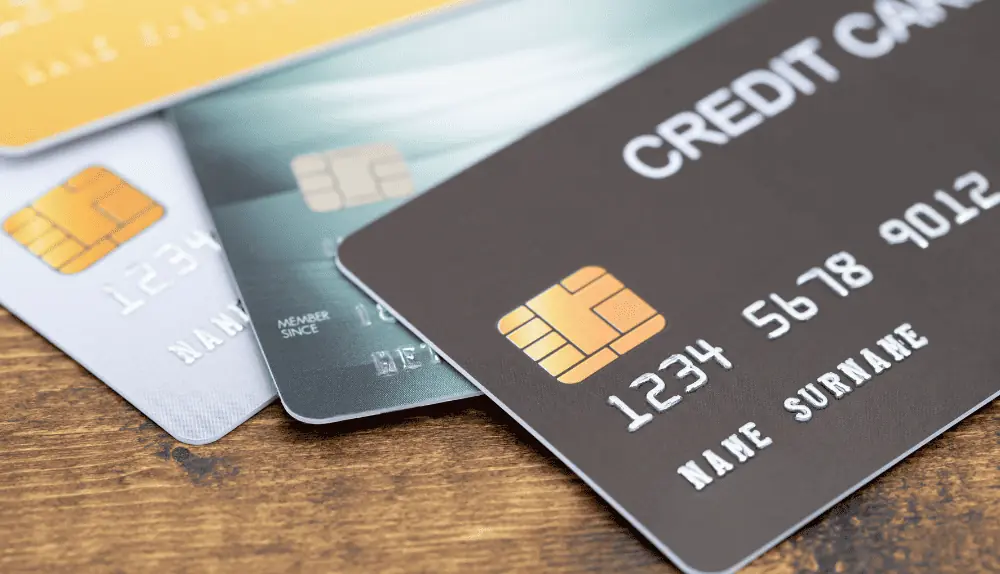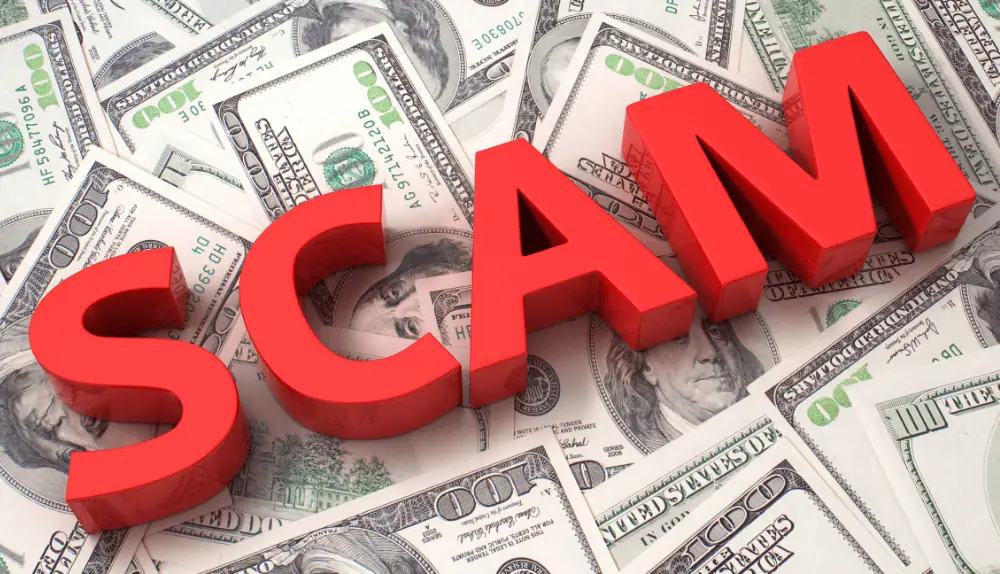No one can deny the importance and popularity of prepaid cards in this electronic and fast-paced world. They have replaced cash and cheques and did quite well. The prepaid cards offer comfort and flexibility, allowing users to shop online, pay bills, and even withdraw cash from automatic teller machines (ATMs).
However, as with any financial product, prepaid cards are not without their pitfalls. Scammers always search for new ways to exploit unsuspecting cardholders and commit fraud. Keep on reading to learn what prepaid cards actually are and explore some of the major prepaid card scams you need to be aware of, using data from Chargebacks911, Chargeback Gurus, and SAS.
What are Prepaid Cards?
Prepaid cards, prepaid debit cards, or stored-value cards are financial instruments that allow users to make transactions without needing a traditional bank account or credit check. Prepaid cards carry pre-loaded specific amounts of money, which the cardholder can use for various purposes, such as making purchases, paying bills, or even withdrawing cash from ATMs.

Prepaid cards do not allow cardholders to spend more than the available balance on the card, which makes them an attractive option for those looking to manage their spending, avoid overdraft fees, or those who do not qualify for a traditional bank account or credit card due to poor credit history or other reasons.
Prepaid cards can be obtained through various providers, including banks, retail stores, and online vendors. They can be reloadable, allowing the cardholder to add funds to the card, or non-reloadable, meaning the card can be used until the initial balance is depleted. Some prepaid cards also include additional features, such as receiving direct deposits, mobile check deposits, and online account management tools.
How does a prepaid card work?
Unlike credit cards, which let cardholders borrow money up to a certain credit limit, prepaid cards require users to load money onto the card beforehand. Prepaid cards are a popular choice for individuals who want to manage their spending, avoid overdraft fees, or those who do not qualify for a traditional bank account or credit card due to poor credit history or other reasons.
Here’s a breakdown of how a prepaid card works:
Obtaining a prepaid card
Prepaid cards can be obtained through a diverse range of providers, including banks, retail stores, and online vendors. An individual may need to provide basic personal information to obtain a prepaid card. However, the approval process is generally simpler and faster than credit cards, as it does not involve a credit check or extensive evaluation of the applicant’s creditworthiness.
Loading funds onto the card
Once the cardholder has received their prepaid card, they need to add funds to it through various methods, such as direct deposit, bank transfers, cash deposits at retail locations, or online transfers from other accounts. Some prepaid cards are reloadable, allowing cardholders to add funds multiple times, while others are non-reloadable and can be used only until the initial balance is depleted.
Making transactions
With funds loaded onto the card, cardholders can use their prepaid card to make purchases at merchants that accept the card, both in-store and online, as well as pay bills or withdraw cash from ATMs. The cardholders can make purchases until the pre-loaded balance on the card ends.
Monitoring balance and transaction history
Prepaid cardholders can typically track their card balance and transaction history through various means, such as online account management tools, mobile apps, or by calling the card issuer’s customer service. Regularly monitoring card activity can help cardholders manage their spending and detect any unauthorized transactions.
Fees and charges
Prepaid cards may come with certain fees, such as activation, monthly, reload, ATM withdrawal, or transaction fees. Cardholders need to be aware of these fees and choose a prepaid card that best suits their needs and usage patterns.
Warning Signs of Major Prepaid Card Scams
By being aware of warning signs, you can identify and avoid potential prepaid card scams. Some common red flags are given below:

Unsolicited contact
Be cautious if you receive an unexpected call, email, or message from someone claiming to represent a company or organization, especially if they request prepaid card information or payment. Legitimate companies usually do not initiate unsolicited contact demanding payment.
High-pressure tactics
Scammers often use urgency and high-pressure tactics to force victims into making quick decisions without thoroughly considering the situation. Be wary if someone is aggressively pressuring you to provide prepaid card information or make a payment immediately.
Requests for payment via prepaid cards
Be suspicious if someone asks you to pay using a prepaid card, especially for services like taxes, utility bills, or prizes. Legitimate organizations typically provide multiple payment options and do not insist on prepaid cards.
Too good to be true offers
Be cautious of job offers, investment opportunities, or other situations that seem too good to be true, especially if they require upfront payment using a prepaid card. These scenarios may be scams designed to steal your money.
Unprofessional communication
Scammers may use poorly written emails or messages with grammatical errors, generic greetings, or incorrect company information. Legitimate companies usually maintain a professional tone and provide accurate information in their communications.
Unverifiable sources
If you are unable to ascertain the legitimacy of the requester through an official website, customer support number, or public records, be cautious about providing prepaid card information or making a payment.
Inconsistent payment methods
Be wary if the payment method changes suddenly or if the requester insists on using a prepaid card after initially mentioning another payment method.
Requests for personal information
Scammers may ask for sensitive personal information, such as your Social Security number or date of birth, to commit identity theft or other types of fraud. Legitimate companies typically do not request this information via email, phone, or text message.
Unsecured websites
If you are making an online payment, ensure the website uses a secure connection (indicated by a padlock icon in the address bar and an “https://” URL). Scammers may use unsecured websites to steal card information.
Untraceable transactions
Scammers often prefer prepaid cards because they are difficult to trace and offer limited consumer protections. If someone insists on using a prepaid card for a transaction, it could be a warning sign of a scam.
Major Prepaid Card Scams
The popularity of prepaid cards attracts scammers who devise ways to defraud unsuspecting cardholders. Here are some major prepaid card scams to watch out for:
Fraudulent Load Schemes
Fraudulent load schemes involve using stolen credit card information or unauthorized Automated Clearing House (ACH) transfers to load funds onto prepaid cards.
Once the funds are on the cards, the scammers can use the cards for various purposes, such as making purchases, transferring the funds to other accounts, or even converting the funds into cryptocurrencies to evade detection.
Prepaid Card Cloning
In a prepaid card cloning scam, fraudsters create counterfeit cards using stolen information. Scammers can obtain card details through skimming or phishing, using specialized equipment to create cloned cards. These cloned cards can be used for unauthorized purchases or withdrawing cash from ATMs, leaving the legitimate cardholder with a drained balance.
Money Mule Recruitment
Money mule recruitment scams involve fraudsters using unsuspecting individuals to move stolen or illegally obtained funds. Scammers often pose as employers, offering work-from-home opportunities or other seemingly legitimate jobs. They instruct the recruited money mule to receive funds (often through a prepaid card) and then forward them to another account, usually in a different country. This process is used to launder money and evade law enforcement.
Prepaid Card Fraud in Online Gaming
Scammers use prepaid cards to purchase in-game items or currency with stolen card information to exploit online gaming platforms. Once the items or currency are acquired, the fraudsters sell or trade them for real money or other valuable assets. This method allows scammers to launder stolen funds through online gaming systems.
Tax Refund Fraud
In tax refund fraud schemes, scammers file fraudulent tax returns using stolen personal information, such as Social Security numbers and dates of birth. They then request the tax refunds be loaded onto prepaid cards. Once the refund is loaded onto the card, the scammer can use the card to make purchases, withdraw cash, or transfer the funds to other accounts.
Romance Scams
Romance scammers create fake profiles on dating sites and social media platforms, targeting unsuspecting individuals looking for a relationship. Over time, they build a false sense of trust and convince the victim they are in a genuine relationship. The scammer may then ask the victim to send money using prepaid cards, claiming they need funds for emergencies, travel, or other fabricated expenses. Once the victim provides the card details, the scammer drains the funds and disappears.
Fake Check Scams
In fake check scams, fraudsters send potential victims a counterfeit check, often as part of a seemingly legitimate business transaction, a work-from-home opportunity, or even as a lottery or sweepstakes prize. The scammer then instructs the victim to deposit the check and return some of the funds using prepaid cards. After the funds have been sent, the bank discovers the check is fake, leaving the victim responsible for the lost funds.
Lottery and Sweepstakes Scams
Scammers contact potential victims, claiming they have won a lottery or sweepstakes prize. In order to claim the winnings, the victim is told they must first pay taxes or other fees using a prepaid card. Once the victim provides the card details, the scammer drains the funds, and the victim never receives the alleged prize. This type of scam preys on individuals’ desire for quick and easy money, exploiting their trust and naivety.
Employment Scams
In employment scams, fraudsters pose as employers or job placement agencies, offering attractive job opportunities that may be too good to be true. They may require the job seeker to pay upfront fees for training materials, background checks, or other fabricated expenses using a prepaid card. Once the victim provides the card details, the scammer drains the funds, and the promised job opportunity never materializes.
How Can Customers Avoid Prepaid Card Scams?
Customers can avoid falling victim to prepaid card scams by adopting the following precautionary measures:
Protect personal information
Never provide sensitive personal or financial information, such as Social Security numbers, card details, or account passwords, to anyone you do not trust or have not verified. Scammers often use this information to commit fraud.
Verify the source
Before providing any prepaid card information or making a payment, verify the legitimacy of the requester. This could include researching the company, calling the official customer support number, or checking for any scam alerts related to the requester.
Be cautious with unsolicited contact
Be skeptical if you receive an unsolicited call, email, or message from an unknown source claiming that you owe money or have won a prize. Scammers often use these tactics to pressure victims into making hasty decisions.
Avoid upfront payments
Be cautious of any situation requiring you to make an upfront payment using a prepaid card, especially if it is for a job, prize, or service you have not yet received. Legitimate companies generally do not require upfront payments in such scenarios.
Check for secure websites
When shopping online, ensure the website uses a secure connection (indicated by a padlock icon in the address bar and an “https://” URL). This helps protect your card information from being intercepted by scammers.
Monitor your card activity
Regularly check your prepaid card balance and transaction history to identify any unauthorized transactions. If you detect any dubious activity, report it immediately to the card provider.
Be wary of high-pressure tactics
Scammers often use high-pressure tactics to force victims into making quick decisions. If someone pressures you to pay through a prepaid card, take a step back and assess the situation carefully.
Use secure payment methods
When making online transactions, consider using secure payment methods, such as credit cards or reputable online payment services, which often provide better fraud protection than prepaid cards.
Report suspected scams
If you are scammed or suspect of being scammed, report it to the appropriate authorities, such as the Federal Trade Commission (FTC) or local law enforcement agencies (LEAs). Reporting scams helps raise awareness and protect others from falling victim to the same scam.
How Merchants Can Reduce Prepaid Card Scams?
Merchants can take the following five key steps to reduce their risk of falling victim to prepaid card scams and protect their businesses:
Implement robust security measures
Ensure your payment processing system complies with the Payment Card Industry Data Security Standard (PCI DSS). Employ fraud detection and prevention tools, such as address verification services (AVS) and card verification value (CVV) checks, to verify the authenticity of card transactions and reduce the risk of fraudulent transactions.
Train employees
Educate your employees about common prepaid card scams and the signs of fraudulent activity. Train them to follow best security practices and report suspicious transactions immediately. Stay informed about the latest prepaid card scams and fraud tactics to better protect your business from potential threats.
Monitor transactions and set transaction limits
Monitor your transaction history and look for any unusual patterns or suspicious activity. This can help you identify potential fraud early and take necessary action to prevent losses. Establish daily or per-transaction limits for prepaid card transactions to minimize the risk of large-scale fraud.
Use secure payment gateways
When processing prepaid card transactions, verify the customer’s information, such as their billing address and contact details. This can ensure the transaction is legitimate and reduce the risk of fraud. Make sure that your payment gateway is reputable and safe, as this can help prevent scammers from intercepting sensitive card information during transactions.
Develop a fraud response plan
Establish a clear plan for responding to suspected fraud incidents, including reporting procedures and guidelines for handling customer disputes. Maintain communication with your payment processor and card issuers to stay informed about fraud trends and to receive support in case of suspected fraud.
Shielding Your Wallet
Prepaid card scams are a growing concern that can result in significant financial losses for both consumers and merchants. By understanding the different types of scams, recognizing the warning signs, and taking necessary precautions, individuals and businesses can reduce their risk of falling victim to these fraudulent schemes.
Consumers must be alert and skeptical of unsolicited contact or requests for prepaid card payments, verify the legitimacy of the requester, and report any suspicious activity to the appropriate authorities. Merchants should implement robust security measures, train their employees, monitor transactions, and collaborate with card issuers and payment processors to safeguard their businesses against potential scams.
In a world where prepaid card usage continues to grow, staying informed and exercising caution are the best ways to protect oneself and one’s business from the financial and emotional consequences of prepaid card scams.

